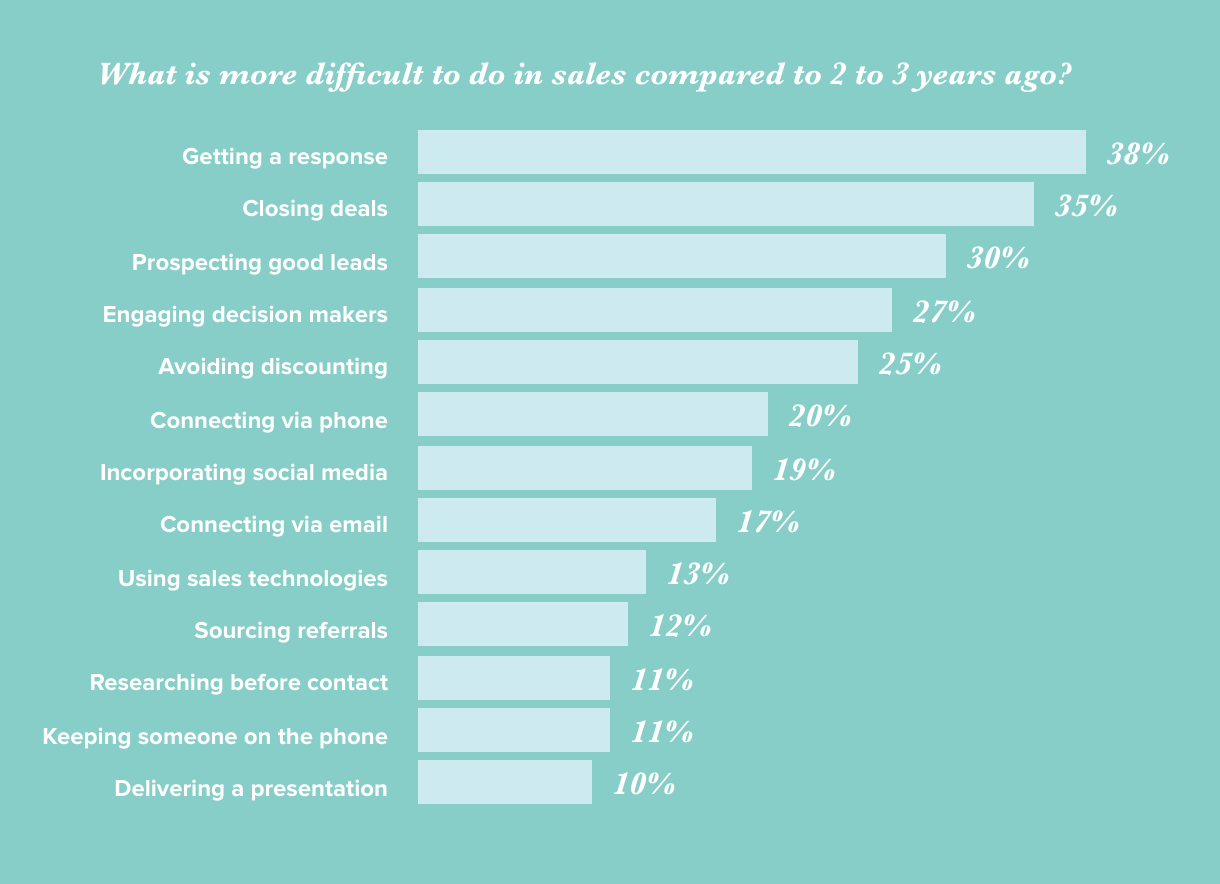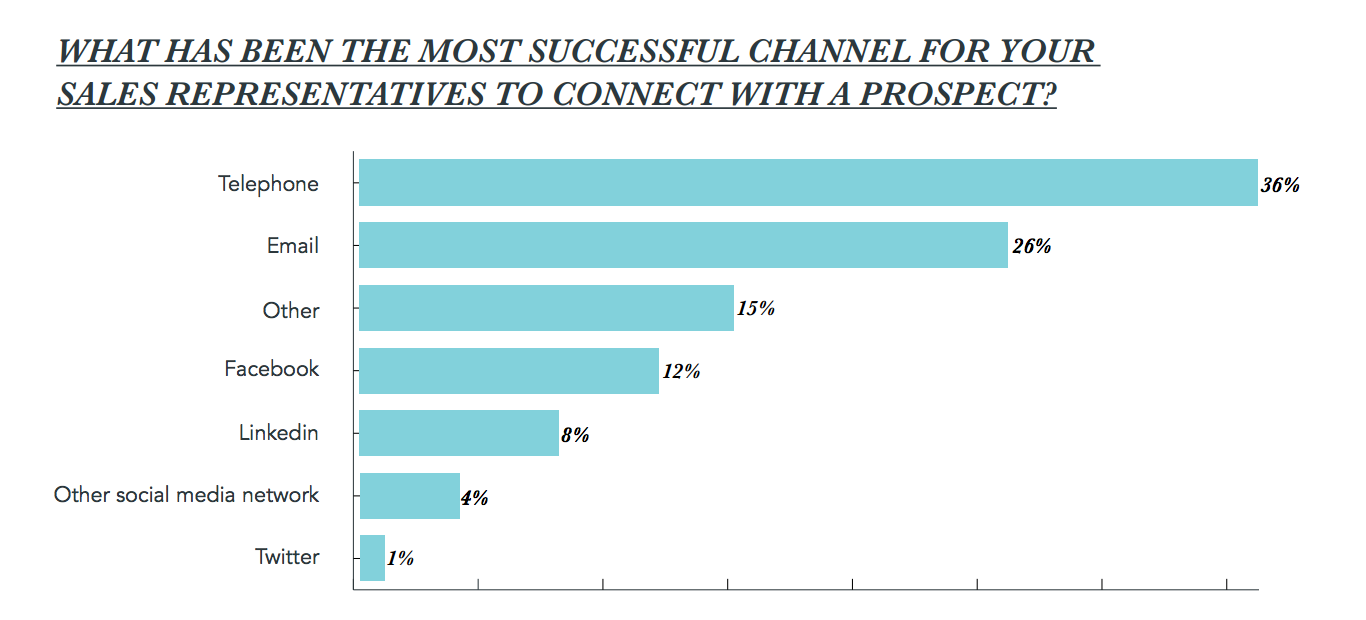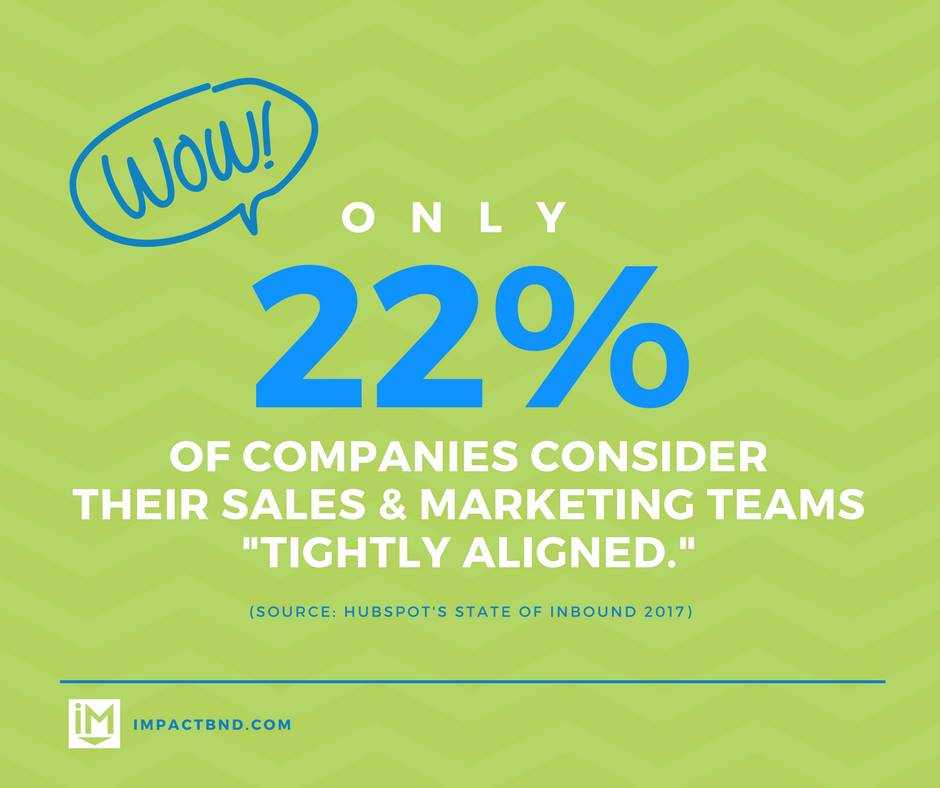Topics:
Inbound SalesSubscribe now and get the latest podcast releases delivered straight to your inbox.
Improve Your Sales Performance With These 3 Trends from the State of Inbound 2017

Jun 12, 2017

You may have noticed that sales
Sales can no longer survive on making a few phones calls and sending a batch of emails to contacts in your database. You need to engage them in more attractive ways that meet buyers at channels where they 'live'.
Some of those channels consist of email, Facebook, LinkedIn, Twitter, Medium, and even live chat. This means marketing teams to better distribute themselves across these places and deliver more educational TOFU & MOFU content for users.But what about sales teams?
HubSpot’s State of Inbound 2017 revealed that sales teams will need to shift into the role of trusted advisors. This is primarily due to the changes in the way people do business.
For those of you not familiar with it, the State of Inbound is a data-packed industry report compiled and released by HubSpot every year since 2008. The company surveys thousands of Marketers (both HubSpot users and non-users) about their Marketing budget, goals, challenges, and tactics, then wraps it up in a neat little PDF package.
This year HubSpot polled a whopping 6,399 inbound marketing staffers from a variety of different backgrounds and industries.
In this article, I’ll detail three of the biggest trends they’ve uncovered and how you and your sales team can use them connect with inbound leads and convert them into opportunities.
Is Your Sales Team Focusing on these Priorities in 2017?
This year, 71% of sales professionals are focusing on closing more deals, followed by 44% who are focused on improving the efficiency of their sales funnel.

(Source: State of Inbound 2017)
However, one challenge many inbound sales teams have is seeing an increase in revenue despite the increase in traffic, contacts, and bottom-of-the-funnel inquiries.
They’re not able to close deals.
If you also have this challenge, check out episode 5 of the IMPACT Show, Bob and Nick uncover 5 things you can do to increase the number of contacts moving from an inbound lead into a real sales opportunity.
Based on the chart above, it’s no surprise that 35% of sales professionals find it more difficult to close deals now vs. two to three years ago.

(Source: State of Inbound 2017)
Another (not so surprising) statistic it that 38% of sales professionals are struggling when it comes to getting a response from prospects.
While there could be several causes, a couple at the top of my mind are:
You’re not educating your leads enough before handing them over to sales.
Due to changing buyer behaviors, it’s uncommon to find prospects today that haven’t done their homework. They understand their pain points and are looking for the right product and solution to solve for those pains.
This means you need to be the organization that gives them the materials that enable's them to do research on their own. These materials should be targeted content you create that will target their pains and gains.
If they are educated and showing a strong interest, you’re not responding in real time.
How long after someone fills out a bottom of the funnel form on your site are you reaching out to those qualified individuals? Is it 5 minutes, an hour, the next day?
Depending on your response, that could be a contributing factor towards how responsive your opportunities are. The longer you wait to respond, the probability of them responding gets slimmer.
Also, don’t send them an email, but follow up with a phone conversation. Use that time to capture more information about the company prior scheduling a consultation with them. Besides, calling is the most successful channel for connecting with prospects.

(Source: State of Inbound 2017)
Sales isn’t approaching inbound leads correctly.
Unlike traditional / outbound marketing leads, inbound leads have already researched your company. Therefore, you’ll want to approach conversations with them differently.
At this point, they don't need to hear the basics. They've read about products or services like yours can help solve their problem, so they don't need the shpeal again. When a lead enters your sales funnel, but a resource for them. Answer questions they may want further explanations on while educating them on strategy and plans that you believe will help solved there problem.
Doing this will enable leads to see you as a trusted advisor rather than someone itching to make a sale.
Bridging the Gap Between Sales and Marketing
Another surprising statistic I found in HubSpot’s State of Inbound 2017, is that only 22% of companies consider their sales and marketing teams to be tightly aligned.

Unfortunately, because of that gap, your sales team can struggle when it comes to prospecting and closing deals.
It is critical for your team to bridge the gap with your teams through sales and marketing alignment as well as sales enablement.
If those last couple terms are new to you; sales and marketing alignment is all about sales and marketing working together. Sales enablement, however, is all about improving the experience sales provides to their prospects.
Here’s a look at a few things your sales and marketing team can start implementing to improve:
- Make sure that you have detailed buyer personas.
- Create content that’s aligned with your buyer's journey. If you have more than one persona, not all of your content will be tailored to those buyers.
- Don’t forget to implement lead nurturing and lead scoring to distinguish which leads are sales ready.
- Create a sales content library that can house case studies, blog content, offers, and other content that can help sales address concerns a prospect might have.
How to Overcome Sales Disruptors
A huge theme that resonated throughout
Ten years ago, the salesperson held the key and had all of the information the buyer needed in order for them to make a purchase. But today, that’s no longer the case. Through inbound marketing, organizations are publishing blog content and building out websites that house the majority of information leads are looking for (who they are, what they do, their product/solution, pricing, etc).
As sales
In order for your sales team to be successful, they’ll need to shift their mindset towards helping prospects find the right solution rather than simply trying to close the deal.


Order Your Copy of Marcus Sheridan's New Book — Endless Customers!
